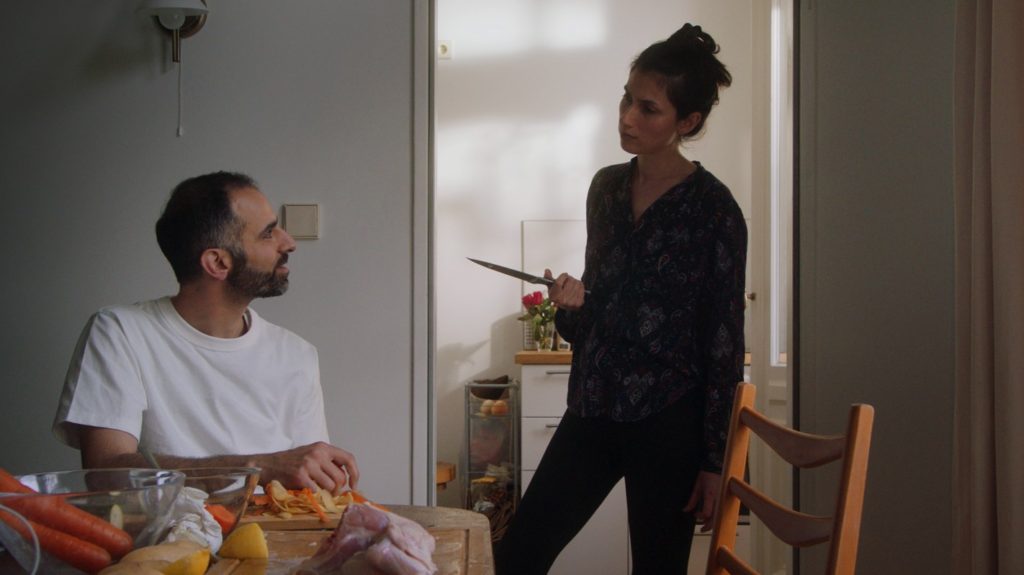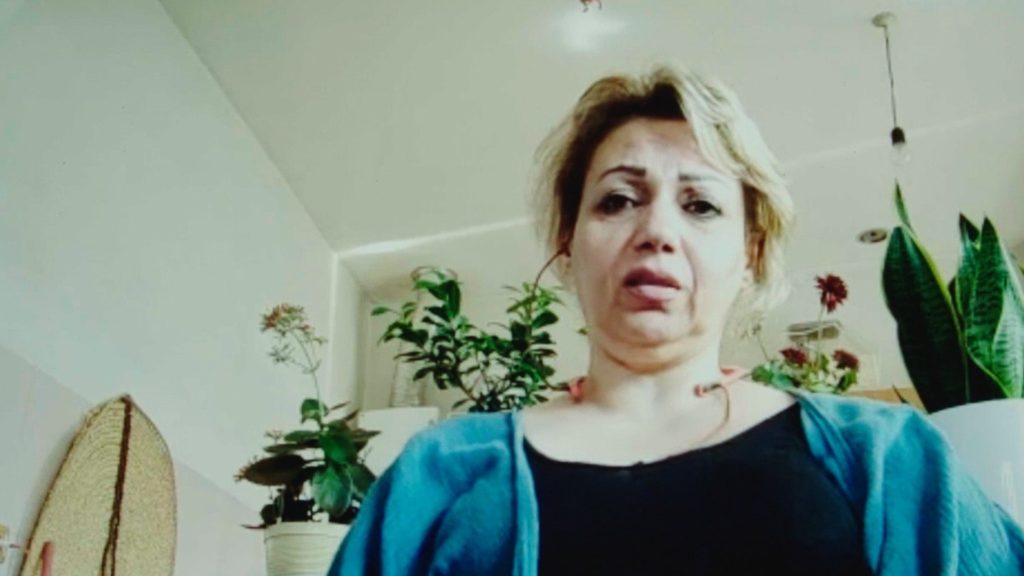Locarno Review: Mother Is A Natural Sinner (2024)
Locarno Film Festival
Pardi di Domani – International Competition

Another year of Locarno, another short film by Hoda Taheri (this time co-written and co-directed with Boris Hadžija) in the Pardi di Domani official competition. Again, we get the word “mother” in the title, and long-distance conversations between the filmmaker/protagonist and her mother over an unspecified communication app, accompanied by the fitting low-grade imagery of a video call. It becomes clear that Mother Is a Natural Sinner is a new instalment in Taheri’s cycle of shorts.
She opens it in shades of red that tend to turn to pink and white, and it all seems abstract when we imagine it as a background to a conversation about the topics of romanticism, sex and sexuality between two Persian women of different generations. Once the camera starts to move, the texture of the imagery becomes tissue-like, and we get the confirmation when the camera “exits” the protagonist’s vagina to reveal to us that she is at a gynaecological exam, accompanied by her partner Hadi (Khanjapour, reprising the role from Taheri’s previous short), which is a logical sequel of As if Mother Cried That Night.
After a conversation with her mother that raises the issue of her late father’s sexuality, the couple starts their own talk over a dining room table while preparing lunch. It slowly steers from the “safe” topics such as different immigration experiences in different countries in different times to those of sexuality and past experiences. Hoda asks Hadi how come he knows whether he is gay if he never tried it, arranging scenarios to point that he is not repulsed by men, but by penises, and is not interested in women, but in vaginas. After a masturbation break, she does something to make a point.
Mother Is a Natural Sinner is the most faithful to the title of all three films in the cycle and with it Taheri and Hadžija try to raise the bar of explicit eroticism that was already set quite high with Mother Prays All Day Long. The topics of immigrant experiences, sex and sexuality remain the same, and so does the style of 4:3 aspect ratio and largely static one-take scenes, this time lensed by Selma von Polheim Gravesen and once again smoothly edited by Hadžija.
This time, however, the accent is on the more universal topics that might seem purely theoretical if we followed the heroine’s arc, and the explicitness in the film seems more like a piece of shock tactics. Taheri is certainly a strong voice of her position as an immigrant, a woman, a person in touch with her sexuality and an artist, but this time it might be the case of novelty wearing off or a sense of obligation to keep the plot running despite the inspiration being weaker than before.

Year: 2024
Runtime: 15’ 20’’
Country: Germany
Languages: Farsi, German
Directed by: Boris Hadžija, Hoda Taheri
Written by: Boris Hadžija, Hoda Taheri
Cast: Hoda Taheri, Hadi Khanjanpour, Jahandokht Safarian, Philip von Polheim
Cinematography by: Selma von Polheim Gravesen
Editing by: Boris Hadžija
Sound design by: Nils Plambeck
Sound by: Nils Plambeck
Production design by: Michael Schindlmeier
Costume design by: Svenja Mangold
Colourist: Eric Giese
Produced by: Maximilian Feldkamp
Production company: DFFB
Sales by: Lights On
















